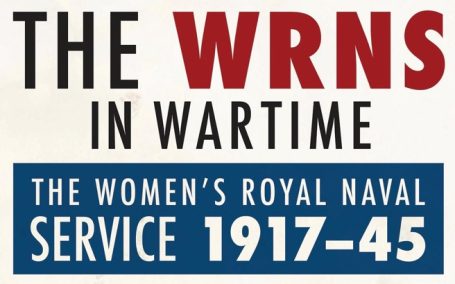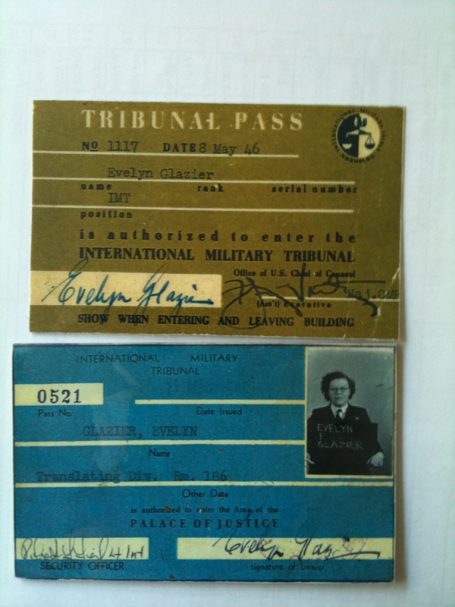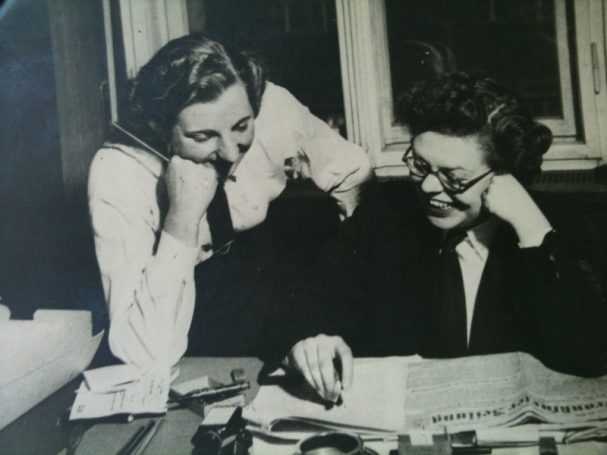Evelyn Glazier, interview with Ivor Richards

Evelyn (left) with Airey Neave, Germany 1945
Interviewed May 2010
Evelyn Glazier’s remarkable journey through some of the 20th century’s most tumultuous times is a story of resilience, dedication, and quiet heroism. Her husband, Ivor Richards, shared her life’s extraordinary narrative in an interview in May 2010.
Early years and a German connection
Born on July 31, 1920, in Birmingham, Evelyn was drawn to languages from an early age. Her academic talents earned her a school certificate in French and German, and she took an unconventional step for a young woman of her time by working for the German Consul in Birmingham. This experience ignited her desire to improve her German, leading her to join an exchange programme in 1938. She lived with a German family and built deep connections that would prove vital in the coming years.
Evelyn’s stay in Germany coincided with the dark rise of Nazism. She lived in a spacious flat with a Catholic family who treated her with great kindness despite their differing faiths. Evelyn’s time in Germany provided her with a front-row seat to the Nazi regime’s growing power and brutality. She was there during Kristallnacht, the “Night of Broken Glass,” and witnessed the horrifying destruction of Jewish shops and homes. Ever the outspoken individual, she questioned the firemen—who were directing water away from Jewish properties—only to be warned to remain silent. Her friend urged her to leave the scene quickly for her own safety.
Despite these escalating dangers, Evelyn’s connections with German friends gave her invaluable insights. In the summer of 1939, while planning a canoeing trip with friends, she learned from Luftwaffe officers that the German military was preparing to invade Poland—a clear indicator of the impending war. Her friends helped her escape Germany just in time. When war was declared on September 3, 1939, Evelyn was rushed to the Dutch border, where she boarded a train to Harwich. The Gestapo interrogated her and searched her luggage, but thanks to her German friends’ support, she safely reached England. Without money, she relied on her father to send funds to get her home to Birmingham.
Service in the WRNS
With the war underway, Evelyn’s linguistic skills became invaluable. She joined the WRNS, persuading her initially reluctant mother to support her decision. Her fluency in German led to her posting in special duties, monitoring and interpreting German naval and air force communications. Stationed along the UK’s east coast, Evelyn listened to enemy transmissions, contributing to the Allied efforts in the Battle of Britain and beyond.
The work was challenging and sometimes harrowing. Evelyn and her colleagues intercepted distress calls from downed German pilots, many crying for their mothers as they burned.
The Nuremberg Trials
At the end of the war, Evelyn’s skills found a new arena—the Nuremberg Trials. Still a Wren, she served as an interpreter, working closely with the Allied forces to present and collate evidence against prominent Nazi leaders. Her role involved translating testimony and documents, ensuring the judges and prosecutors had a clear understanding of the evidence. Evelyn worked directly with British and American intelligence teams, often handling sensitive and classified materials. She was privy to shocking accounts of the atrocities committed during the Holocaust and the war, which required immense emotional strength to process and communicate.
Reflecting on her time at Nuremberg, Ivor noted how Evelyn was responsible for translating and presenting critical evidence—a difficult job given the nature of the material—but that she handled it with professionalism and dedication.
One of Evelyn’s key responsibilities was liaising with Russian counterparts as part of the Allied coordination efforts. Her professionalism earned her respect from her peers and superiors, including Airey Neave, a pivotal figure in the trials. Ivor shared, “Neave was very appreciative of the work Evelyn did. He even sent her a letter recognising her contributions, which she treasured.” Evelyn’s contributions helped ensure that justice was served, and her role in this historic chapter underscored the importance of interpreters in bridging language barriers during such critical moments. This letter can be seen at the bottom of this page.
See an example of her transcription here
Post-war years and the Foreign Office
Evelyn transitioned from military service to the Control Commission for Germany, helping rebuild the war-torn nation. Her compassion shone through as she used her access to American PX stores to provide essential goods to her struggling German friends. Later, she joined the Foreign Office and Board of Trade, where her language skills and diplomatic acumen continued to make a difference.
Love and life with Ivor
Evelyn met Ivor Richards through their shared connections to Whitehall Travel. Their courtship was one of serendipity and persistence, with Ivor frequently travelling to London to visit her flat. They married in 1961, and while Evelyn had to give up her job—a requirement for married women at the time—she adapted to new roles in Guildford, prioritising her life with Ivor.
The couple’s bond was strong, characterised by mutual respect and a shared sense of humour. Ivor described their relationship as a “Derby and Joan Club,” saying, “We never fell out. It was very enjoyable. I wish she was back.” Though they had no children, their life together was fulfilling. Evelyn’s intelligence and warmth left a lasting impression on everyone who knew her.
Legacy of an extraordinary woman
Evelyn Glazier’s life was a testament to courage and adaptability. She navigated the complexities of pre-war Germany, contributed significantly to the Allied war effort, and played a part in shaping the post-war world. Her story, as told by her devoted husband, highlights the invaluable contributions of women in wartime and beyond.
© Copyright Hannah Roberts 2025, © Copyright Hannah Roberts 2017 'The WRNS in Wartime', Bloomsbury
All rights reserved.
We need your consent to load the translations
We use a third-party service to translate the website content that may collect data about your activity. Please review the details in the privacy policy and accept the service to view the translations.



